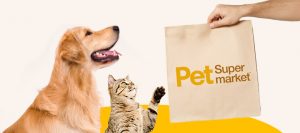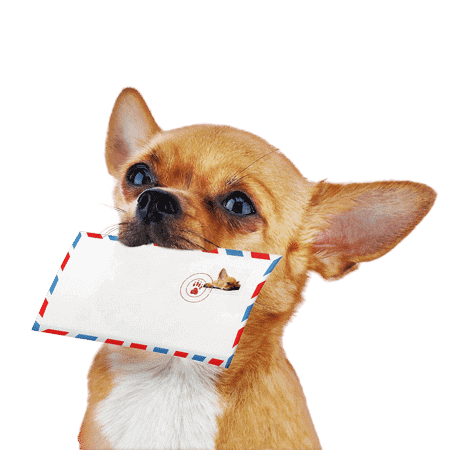Your puppy is chewing, and you don’t know what to do? You will find all the answers to your questions here as well as the consequences of this behaviour if you do not act quickly.
Why does my puppy need to chew?
First of all, you should know that a puppy needs to chew to soothe himself and discover what’s around him. Just like children who put everything they find in their mouths, puppies chew to discover their environment.
It is a reflex that they keep from their first weeks of life with their siblings. The dog “games” were finally sessions of jostling, biting and fighting in short. How could they then understand that these play sessions were no longer acceptable once they arrived in their new family? So, it’s a full-fledged learning experience (just like potty training or walking on a leash) that you need to teach your puppy as soon as he arrives at your home.
For adult dogs, chewing is a need, just like running, eating and drinking. However, chewing is essential for a dog, so you should not try to prevent a dog from chewing but rather allow him to chew on objects adapted and designed for this purpose.
My dog chews on hands, feet and furniture: what should I do?
When a puppy or a dog starts chewing on anything and everything, it’s very unpleasant because it either hurts (feet and hands) or damages the objects and furniture in the house.
Therefore, you must offer your puppy or dog an alternative, a way to chew that is acceptable and even encouraged.
To do this:
Provide your pet with regular occupancy and chew toys,
Don’t leave these toys available all the time, or they will lose their “value” to your pet,
Choose specific times, especially when you feel your dog needs to be occupied, and initiate the beginning and end of the chewing activity,
Choose quality toys that are sufficiently solid (avoid stuffed animals) to prevent your dog from ingesting pieces of food or spending 2 seconds “occupying” himself.
These tips are valid for “preventing” chewing, but when your puppy or dog is chewing on you, here is the attitude you should adopt.
As soon as your pet chews on your hand, foot or even if it is just chewing on your clothes, give a little cry like “ouch”, then walk away and ignore your dog completely.
To ignore your dog correctly: don’t talk to him, touch him or look at him. In short, turn your back on him and even move to another room if necessary. Your dog will then understand that the attitude he has adopted is causing something he hates, namely being alone.
Repeat this whenever your puppy or dog bites you, but most importantly if he doesn’t bite you, reward him warmly. Show him that when he’s calm and gentle, he gets all your attention. However, as soon as he gets excited and starts chewing you: the social interaction is over; you’re gone!
Mistakes not to make
Above all, when your puppy or dog starts to chew you, the worst mistake to make is to let him do it; we’ll see why later.
In the meantime, here is a list of minor mistakes that we sometimes make without even realizing it and that it would be better not to make in the future:
You are playing with your puppy or dog without toys (just with your hands and body). This can be an excellent way to play, but only when your dog has acquired self-control and lost the habit of chewing you.
Pay systematic attention to your dog as soon as he starts chewing on you. This only reinforces your dog’s bad behaviour because he understands that he gets all your attention by chewing you. Without letting him do it, think of the method mentioned before: shout + ignore!
Punish your dog after the fact following the destruction caused by chewing. This makes no sense to your dog and will only make you look bad in front of him.
Hit your dog when it starts to chew. Violence and brutality have never solved anything. This attitude breaks the trust between you and your dog.
Until what age does a puppy chew?
There’s no set age for a puppy to stop chewing. He will only stop doing it if you take charge and especially if you take the time to teach him not to do it!
Although this is mainly a juvenile reflex that can diminish with time if you don’t adopt a clear and consistent attitude, your dog, even as an adult, will have no reason to stop chewing. Because here, time does not solve everything; on the contrary, it can worsen the situation if no measures are taken.
This is why it is essential to limit chewing very early on and to redirect it to toys designed for this purpose.
Risks if chewing is not stopped quickly
An adult dog that has been allowed to chew on anything and everything is a dog that has not learned an essential notion in education: self-control.
If no limit is set, your dog can quickly become dangerous, for you, for your children if you have any, for all the people he will meet but also for his fellow dogs.
It is important to act from the youngest age of the puppy so that he learns to control the strength of his jaw, without which dramatic consequences could happen.
Furthermore, if you don’t stop chewing quickly, you can forget about your furniture, and even if you buy a new sofa, a new table or brand new chairs, your dog won’t know the difference.
Finally, it is much easier to forbid something to a puppy by teaching him good manners directly than to try to suppress a bad behaviour, installed for a long time, by another one more acceptable to an adult dog already well-conditioned.



